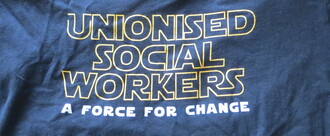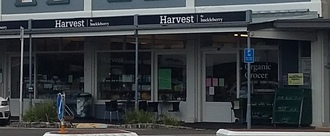-
Save Wellington Citizens Advice Bureau!Wellington Citizens Advice Bureau provides a free information and advice service to people in need. It helps people know about their rights and responsibilities and the services available in their community. It is there for everyone, about everything. Despite this, Wellington City Council wants to cut its services and leave its citizens without this essential support. Last year Wellington CAB helped over 30,000 people with questions and problems across the range of issues people face in their lives. These include helping with enquiries about emergency accommodation, noisy neighbours, overhanging trees, abandoned vehicles, relationship issues, enquiries about consumer rights, tenancy rights, employment rights, as well as information about local services - the whole range of questions and queries imaginable. It also includes referrals from the City Council and helping people to fill in Council forms! Wellington CAB has had a long-term strategic partnership with Wellington City Council. In spite of this, the Council have, without consultation, made a recommendation to stop funding the Wellington CAB via its long-standing contract for services, and give a one-off six month grant for the CAB to completely redesign its operation, including shutting the doors on its physical premises. The Council have said there is “no guarantee of funding beyond that”. The CAB is core community infrastructure. It is locally responsive, and staffed by dedicated volunteers from the local community. The people who come to the CAB often don’t know where to go, don’t know what assistance is available to them, can’t access information, or are excluded from services. Without the CAB those people will fall through the cracks. Please show your support and save this essential community service.4,822 of 5,000 SignaturesCreated by Sacha Green
-
No Plastic Bags at Wellington City MarketsLike many people I used to be addicted to plastic. I purchased plastic products in plastic bags and this plastic waste went into plastic bin liners and ended up in a mountain of plastic. Some ended up in our oceans too. If I'm honest I just didn't think about it. I consumed and I wasted. More recently I realised that my individual actions have a part to play in collective destruction. Plastic is a scourge on our beautiful planet and I am ashamed that plastic is still commonplace in our communities. Sometimes issues like global warming, pollution and the scale of environmental degradation overwhelm me and I don't know what to do. But I know that I can reduce my plastic consumption. This is within my power and control. One tangible change I made was buying a stash of tote bags. Now I use them for the markets, shopping at the supermarket and running errands every day. They're a part of my life now. It isn't hard to carry them with me to the market and they're much stronger than plastic bags which is great because I buy a lot of produce! If plastic bags weren't an option at the markets I'm certain that people would transition to reusable bags quickly, especially if there was a bit of warning in the lead up. It makes no sense to have plastic bags at our markets when they're so harmful and the alternatives are just so easy! Wellington is a city that leads the way. Progressive Enterprises, which runs Countdown supermarkets, announced all its stores would be ditching single-use plastic bags by the end of the year. If a large corporation can make the switch then a local market can do the same. There is no reason good enough to continue with plastic bags.700 of 800 SignaturesCreated by Benjamin Johnson
-
Hey Auckland Transport, please keep your word on Lynfield bus routesAuckland Transport (AT) is about to implement the New (Central Bus) Network in July 2018, without the 191 route they had promised in 2016. After consulting with the community in 2015, AT committed to the new 191 bus route to link Lynfield-Blockhouse Bay-New Lynn in 2016. A map including the new 191 route was produced and the ‘Consultation Summary & Decisions Report’ said “The Puketapapa Local Board has advocated for a bus service to link Lynfield with Blockhouse Bay… This is able to be accommodated by extending the limited (hourly) local service route 191”. This was great news, as many years ago, when the old Auckland City was deciding between putting a new library at Blockhouse Bay or Lynfield, they had gone with Blockhouse Bay and promised Lynfield a bus link that was never delivered. The population of Lynfield has grown a lot since then too, and is about to grow even further with the addition of a large Ryman's retirement village on Commodore Drive. Sadly Lynfield has also lost a lot of the services it used to have - the last bank has gone now, the pharmacy has recently closed (with a new pharmacy coming at some point in the supermarket), and a postal agency but no longer a post shop, as well as the lack of library and civic services. This link to Blockhouse Bay is even more needed that it was when it was first promised many years ago. However AT changed their mind about the 191 route, which will not go ahead. We are calling on AT to keep their word to Lynfield and re-instate this important local service as promised. There isn't another route for people to get from Lynfield to the west, and won't be in the new network either - they will have to catch a route in towards the city and then another one back out (and most likely won't do that at all in many cases). There's a very large steep hill that people would need to walk up, as part of quite a long walk, to get to the bus services that go west. It's not practical for people with mobility issues, and is generally avoided even by fit school children (too many of whom get driven to nearby Lynfield College when this would help them to get there another way). Some people will be driving more, without this vital link, others will be more socially isolated. Organised by Roskill Community Voice and your local Labour MP, Michael Wood. Please sign the petition to add your voice.408 of 500 SignaturesCreated by Julie Fairey
-
Support Māori wards and increased Māori representation in local governmentWe are a community of people that value fairness and inclusion. We want our cities and towns to be vibrant and flourishing democracies where everybody participates, and our children and grandchildren can see themselves reflected in the leaders we elect. We believe the more people participate in local government, the more council decisions and actions will achieve positive outcomes for all of us - everyday people and the land we love - both now and for the future. Sadly, we are being held back from this vision because Māori are under-represented in local government and they have been for a long time. One way to rebalance this and increase Māori representation is to establish Māori wards. These are a bit like the Māori seats in Parliament, but for local government. They establish areas where those who choose to go on the Māori electoral roll can vote for councillors to represent them. In 2018, councillors in five areas - Kaikōura, Whakatāne, Western Bay of Plenty, Manawatū and Palmerston North - voted to establish Māori wards to increase Māori representation. Until Don Brash, Hobson’s Pledge and a handful of anonymous wealthy backers used fear and the politics of the past to force a public referendum using an outdated, discriminatory law. We are all for increasing participatory decision making. But these referenda are unfair for two reasons. ➡️No other ward (e.g. rural) can be subject to a referendum and decided on this way; and ➡️ The rights of a minority group should never be decided by the majority. On Saturday 19 May, all votes were counted and as of writing, all districts have voted against increasing Māori representation. In Whakatāne, 56.39 percent voted against Māori representation. 43.37 percent in favour. The total Māori population in Whakatāne? 43 percent. These referenda shouldn't have ever happened. It's long past time to change the discriminatory law that enabled them in the first place. With another referendum being floated by Hobson's Pledge and New Plymouth District Councillor Murray Chong to challenge a decision to establish a Māori ward in New Plymouth in July 2020, the time for action is now. Together, we can create an inclusive community where we all have a voice, and everyone is involved in making good decisions together about our shared future.11,267 of 15,000 SignaturesCreated by Team ActionStation

-
Fund Mental Skills Training for All Children and Young People in Aotearoa New ZealandLatest data shows New Zealand ranks 34th out of 41 countries regarding overall childhood wellbeing. Our adolescent suicide rate is the highest among developed nations. (1) Antidepressant medication being prescribed to children under 13 years in New Zealand has increased 79.4 percent since 2006, and increased 101.9 percent among teens aged 14-18 during the same time period. (2) Recent analysis has shown that increased smartphone and tablet usage corresponds with increased feelings of loneliness, decreasing levels of sleep and decreased social interactions among young people, leading some experts to comment that we are on the brink of a major mental health crisis among children and young people. (3) NZ school children, teachers and youth services staff are not receiving the support they need due to an absence of funding for evidence-based and proven programmes such as Pause, Breathe, Smile and ATAWHAI. EVIDENCE-BASED, AOTEAROA-DEVELOPED SOLUTIONS Pause, Breathe, Smile and ATAWHAI have a combined highly positive impact for young New Zealanders across a wide range of socio-economic backgrounds. This includes: - mainstream primary, intermediate and high schools - Māori and Pasifika tamariki and rangatahi - schools with high ethnic diversity - children impacted by the Canterbury earthquakes - marginalised youth dealing with anxiety and depression - youth in alternative education and youth justice Both programmes are being translated into Te Reo Māori with a focus on applications and research in partnership with iwi and within Kura Kaupapa Māori settings. Pause, Breathe, Smile aligns with the New Zealand Education Curriculum, making it easy for schools to implement. It is supported by the Mental Health Foundation of New Zealand and has an internationally recognised published evidence base of effectiveness. ATAWHAI is a youth mentoring and mindfulness-based programme that has resulted in transformational change among high-priority youth. Research (4,5,6), and evaluation results of these programmes show children and young people experience: - Increased calm and resilience - Increased focus and attention - Enhanced self-awareness and conflict-resolution skills - Increased kindness, empathy, connection and pro-social behaviour - Statistically significant increases in emotional and general wellbeing Teachers, youth mentors and program facilitators also report reductions in stress. These findings add to the international evidence base, which shows that when taught in schools, mindfulness boosts cognitive performance and builds resilience (7). Please sign now to recommend funding for these programmes. Together we can boost the wellbeing of our nation’s young people, ensuring they’re equipped with awesome mental skills to thrive and not just survive in the face of a rapidly changing, uncertain world. https://www.youtube.com/watch?v=2s_nkIo3TwM&t=64s https://youtu.be/ABoQdxBFnss ABOUT US: Mindfulness Education Group: https://www.mindfulnesseducation.nz The Kindness Institute: http://thekindnessinstitute.com REFERENCES: (1) UNICEF (2017). Building the Future - Children and the Sustainable Development Goals in Rich Countries. UNICEF Office of Research – Innocenti. Florence, Italy. (2) Wiggins, Amy. Number of children and teens on anti-depressants doubles. New Zealand Herald. 7 June 2017: http://www.nzherald.co.nz/nz/news/article.cfm?c_id=1&objectid=11870484 (3) Twenge, Jean M. Have Smartphones Destroyed a Generation? The Atlantic. September 2017: https://www.theatlantic.com/magazine/archive/2017/09/has-the-smartphone-destroyed-a-generation/534198/ (4) Rix G and Bernay R (2014) A study of the effects of mindfulness in five primary schools in New Zealand. New Zealand Journal of Teachers’ Work, Volume 11, Issue 2, 201-220. (5) Devcich D A, Rix G, Bernay R & Graham E (2017). Effectiveness of a mindfulness-based program on school children’s self-reported well-being: A pilot study comparing effects with an emotional literacy program. Journal of Applied School Psychology, http://dx.doi.org/10.1080/15377903.2017.1316333 (6) Bernay R, Esther Graham, Daniel A. Devcich, Grant Rix & Christine M. Rubie-Davies (2016): Pause, Breathe, Smile: a mixed-methods study of student wellbeing following participation in an eight-week, locally developed mindfulness program in three New Zealand schools, Advances in School Mental Health Promotion, DOI:10.1080/1754730X.2016.1154474. (7) Zenner C, Herrnleben-Kurz S and Walach H (2014) Mindfulness-based interventions in schools—a systematic review and meta-analysis. Front. Psychol. 5:603. doi: 10.3389/fpsyg.2014.0060314,488 of 15,000 SignaturesCreated by Tash, Kristina and Grant From MEG and TKI
-
Open access to a full menu of services: Public submission to the Mental Health InquiryThe Government Inquiry into Mental Health and Addiction is now open to public submissions on how New Zealand’s approach to mental health and addiction needs to change. The People’s Mental Health Report [1] and other sources show that people and their whānau who experience stress, distress and addiction widely agree: • New Zealand’s social conditions can undermine wellbeing for some people. • The service system responds poorly to the needs of people with mental distress and addiction – with difficult access, a narrow range of responses and poor outcomes. To achieve open access to comprehensive range of responses, the government needs to commit to seven wellbeing priorities across the spectrum – to prevent, respond to, and lessen the impact of mental distress and addiction: • We live in social conditions that enable us to look after our own and each other’s wellbeing. • We know how to recognise and respond to stress, distress and addiction. • We can easily find services and supports for people with distress and addiction. • We get timely, respectful and helpful responses from them. • We have access to a comprehensive range of community-based services and supports. • We are supported by people who have ‘walked in our shoes’, as well as professionals. • They support us to reconnect with ourselves, our whānau and valued roles in our communities. To meet these priorities, the government needs to redesign the system: • All the sectors that have responsibility for wellbeing, distress and addiction - such as health, social development, justice, corrections and education: → Jointly fund services, support and opportunities at the local level. → Provide responses for people’s social, economic, psychological, spiritual and health needs. → Co-deliver the responses in community settings, such as primary health, marae, workplaces, and online. • Māori design and deliver services for Māori. • There is a major expansion of the peer and cultural workforces. • The system is accountable to the people for the fulfilment of the seven wellbeing priorities. The Inquiry into Mental Health and Addiction gives us a rare opportunity to be part of a world-leading transformation. 'More of the same' will not fix the problem but open access to a comprehensive range of services will improve wellbeing and save lives. Please support open access to a comprehensive range of services by signing on to this Open Submission. To find out more, or read the full submission, The Wellbeing Manifesto for Aotearoa New Zealand, go to: https://www.wellbeingmanifesto.nz/ For more on the Review see: https://www.mentalhealth.inquiry.govt.nz For info on PeerZone go to: https://www.peerzone.info/ 1 - The People’s Mental Health Report: https://www.peoplesmentalhealthreport.com2,137 of 3,000 SignaturesCreated by Mary O'Hagan

-
Gives Us Back Our CampsThe Government has forced a historic specialist social service for children with mental disorders to close its doors in Otaki and Roxburgh regions. The children who come to them have been legally diagnosed with behavioural disorders under the mental health system and these children are exposed to other difficulties, sometimes resulting in neglect, abuse, discrimination and other trauma which sees them becoming uncontrollable and anti-social. Behaviourial disorders cause children from as young as 4 years of age exhibiting aggressive and violent outbursts. Children and young people who are at significant risk of harm to themselves and others. I am a single mum of two children aged 11 & 12 and our personal experience with STAND has been the most uplifting experience we have ever had. My 12 year old suffers severe ADHD, ODD (Over distress disorder) PTSD (post traumatic stress disorder) and bipolar and our family also survived domestic violence. My children feeling like they had to protect me, having forgotten that they are children and placing themselves into an adult role, having lost their childhood and what it means to be a child. There are thousands of children in NZ that have lost the essence of what being a child really is. My family were referred to STAND in 2015. From that day my children's lives have come right, my children no longer needing to protect me from harm, my children for the first time being able to be children. Domestic violence can have a traumatic impact on children with and without special needs. Respite reforms these children and their families to a new beginning and understanding of their distress (not the behaviour). Only with respite can these children learn to control and manage their behaviour to better themselves for the future. Children who have attended these camps have been legally diagnosed with behavioural disorders and are also victims to severe trauma in their innocent lives. Imagine how scary life is for these little ones to experience family violence. STAND have helped hundreds and thousands of children in these situations for the past 99 years. The closure of the STAND respite camps in the lower parts of the North and South island could see a higher risk of child suicides, domestic violence and a higher crime rate by children and youths. The Otaki camp have had a high number of children from the Wellington region attend. Closure of these camps will put an enormous strain on government agencies such as the police, Oranga Tamariki and community organisations that are ill equipped to deal with the needs of mentally distressed children. Why get rid of a service that has had a consistent success rate over 99 years? Why does government not understand that STAND has been providing a wrap around service that covered respite as well as social worker interventions that have been successful over the years? To date, the new systems and services that the minister for children claims to be available are not as easily accessible services for parents and caregivers. In fact this new system of services makes the lives of these families more hectic and stressful with having to deal with 4 - 6 different agencies. Both camps closures cover the lower North and South island regions of the country - half the country no longer have access to the respite services. Sign my petition to show your support. https://www.odt.co.nz/regions/central-otago/e-mob-be-presented-pm-today https://www.stuff.co.nz/national/health/105546766/porirua- https://www.odt.co.nz/regions/central-otago/huge-blow-roxburgh-stand-confirms-closure-childrens-village https://www.standforchildren.org.nz/ Where to get help: Lifeline - 0800 543 354 Depression Helpline (8 am to 12 midnight) - 0800 111 757 Healthline - 0800 611 116 Samaritans - 0800 726 666 Suicide Crisis Helpline (aimed at those in distress, or those who are concerned about the wellbeing of someone else) - 0508 828 865 (0508 TAUTOKO) Youthline - 0800 376 633, free text 234 or email [email protected]1,607 of 2,000 SignaturesCreated by Bonny Ngatai
-
Save Social Housing!Housing is a right and a basic need. Right now, the Palmerston North City Council has proposed to charge market rent for their social housing. Council social housing must be affordable; for our current tenants, pensioners, vulnerable communities, and for the next generations. To charge market rents is a betrayal of citizens who need subsidised housing the most. Even a $7-$17 increase in rent paid will eat into the basic needs of those with little to spare and opens the door to further increases. Suitable housing is a human right and needs to be considered in terms of people lives first and foremost. Please stand with us and sign the petition. Even better, tell your local councillors to vote no for market rent on social housing. https://www.pncc.govt.nz/yourcouncil/mayor-and-councillors/councillors/63 of 100 SignaturesCreated by Benjamin Schmidt
-
Get Victoria University Fair Trade Accredited!Fair trade has wide-reaching benefits for disadvantaged producers in less-economically developed countries, including commitments to fair wages, environmental protection, gender equality, community development projects and policies against forced and child labour. As an institution which professes our values to be respect, responsibility, fairness, integrity and empathy, this is something Victoria University of Wellington must support. Currently, Victoria University of Wellington’s efforts to be a “global–civic university” with a “commitment to civil society and global citizenship,” as mentioned in their Strategic Plan, is undermined by a lack of fair trade initiatives, as the university remains complicit in proliferating global trade inequalities. Ethical trade and transparent supply chains are values that are becoming increasingly important to consumers, especially students. Fair trade accreditation provides Victoria University of Wellington the opportunity to assert itself as a leader in the world of ethical trade. Becoming fair trade accredited would reaffirm the University as a values driven organisation and meet some of its commitments, such as the ‘University Commitment to the Sustainable Development Goals’ in 2017 where VUW agreed to support and promote the sustainable development goals; striving for fair trade accreditation will help meet some of these goals such as: responsible consumption and production; reduced inequalities; no poverty; and good health and wellbeing. Otago University and the University of Canterbury have already achieved fair trade accreditation through increasing the availability of fair trade products on their campuses and promoting these options to students and staff. Through striving to meet the requirements for fair trade accreditation, Victoria University of Wellington will be able to better support and promote fair trade products and initiatives. For Victoria University of Wellington to truly represent the city, it must represent Wellington’s values and initiatives. Wellington was branded the first fair trade capital city in the Southern Hemisphere in 2009 and continues to support fair trade organisations and initiatives. The University must aim to do the same. Fair trade accreditation is granted by Fair Trade Communities NZ once the outlined requirements have been met. This system recognises products with either the World Fair Trade Organisation or the Fairtrade International symbols.1,227 of 2,000 SignaturesCreated by Victoria Development Society

-
Free Counselling for all Kiwis: Open Submission to the Mental Health Review“Depression and anxiety account for more of the misery in Western Societies than physical illness does … So the front line in the fight against misery is the fight against mental illness.”[1] Counselling and talk therapy is a highly effective treatment for mild to moderate depression and anxiety[2], and in many cases should be the first treatment offered. Yet despite this, it is not widely available and as a result many New Zealanders are not receiving adequate treatment for their mental health difficulties. Frustration with how hard it was to access talk therapy and counselling was one of the most common concerns expressed in the People’s Mental Health Review[3], with many saying they wanted to access talk therapy but were unable to due to cost and availability. https://youtu.be/X_80Zzl23YA Providing Free Counselling and Talk Therapy will enable more people to access treatment earlier, and as a result will take pressure off specialised psychiatric services, already overwhelmed. We know that treatment outcomes for all mental health problems are significantly improved by access to treatment earlier. Improved access to talk therapy and counselling will save money and save lives. With New Zealand having one of the highest levels of suicide in the OECD, we should be doing everything we can to provide treatment for those struggling with their mental health. While many will express concern about the envisioned cost of such an approach, a widely cited WHO-led 2016 study[4] showed, ‘Every US$ 1 invested in scaling up treatment for depression and anxiety leads to a return of US$ 4 in better health and ability to work’. Far from being a “pie in the sky” idea, fully funded counselling and talk therapy has been introduced in other countries, most notably in the UK via the “Increased Access to Psychological Therapies” or “IAPT” initiative. The growing recognition of the impact of the burden of mental health has meant many other nations are looking at how to implement such schemes. Let’s make Aotearoa a world leader in the provision of mental health care. Sign the Open Submission to support the call for Free Counselling and Talk Therapy for all Kiwis. 1. Layard, R and Clark, D. “Thrive: the Power of Evidence-Based Psychological Therapies” (2014). Penguin Books 2. http://www.apa.org/news/press/releases/2012/08/psychotherapy-effective.aspx 3. https://www.peoplesmentalhealthreport.com 4. http://www.who.int/mediacentre/news/releases/2016/depression-anxiety-treatment/en/5,578 of 6,000 SignaturesCreated by Kyle MacDonald
-
Stand Together for Social Work - Change the Registration Bill!Social work is an integral part of our health and social service sectors. Whether you think of a ward in a hospital, a women’s refuge, a primary health organisation, a school, emergency accommodation, child protection or one of a hundred other settings, we are there. Our profession brings a unique skill set to the table, synthesising theories of social work, social sciences, humanities and indigenous knowledges. Principles of social justice, human rights, collective responsibility and respect for diversities are central to social work. We are a strong and important profession, who play a vital role in supporting families and communities as well as challenging the systemic injustices that generate inequalities. We are worthy of recognition and protection from erosion, undervaluation and manipulation. Yet the Social Work Registration Bill currently before the house does not recognise the complexity and importance of our work. The Bill ignores the views of the overwhelming majority of the sector. It conveys a strong message that social work is vague, confusing, unimportant and fundamentally, unskilled. The Bill does not define or reference a scope of practice for social work. It makes registration virtually meaningless. And it means if your job title includes the words “social work” or “social worker”, you’re covered – and if it doesn’t, you aren’t. And as if that weren’t confusing enough, there are exemptions for some people even if they do have that job title. The end result: the public can’t be sure if the person they’re dealing with is qualified, skilled and accountable. We reject the idea repeated by the select committee and Ministers that the practice of social work is difficult to define. This work has been done by our international community and by our social work registration board. If anything else is needed we have more than enough skill and knowledge in our community to define and articulate our own work. It’s laughable to imagine a situation where an employer decides who can call themselves a nurse, or a dentist, or a lawyer. The same should apply for social work. It will create a situation where employers can pay lower wages and cut corners to avoid paying registration and supervision. It will only be a matter of time before this leads to a critical incident within our communities as the quality of practice is diminished in favour of affordability. This bill is outrageous and shows how far we still have to go in valuing work traditionally seen as “women’s work.” If you think that social work can be done by anyone and is not highly complex, skilled and emotionally demanding work we urge you to go into the field with a social worker. If you vote this bill through to law, you will cripple our profession. We urge you to urgently redraft the bill taking into account the views of those working in the sector. We are, after all, the experts in our own work. The Social Work Community of Aotearoa New Zealand and our allies. Social workers call for govt to scrap registration bill 24 April 2018 https://www.radionz.co.nz/news/national/355836/social-workers-call-for-govt-to-scrap-registration-bill Social work bill ‘nonsense’ - Dr Ian Hyslop, University of Auckland 24 April 2018 https://www.newsroom.co.nz/2018/04/23/106052/social-work-bill-nonsense# Social Workers Registration Legislation Bill https://www.parliament.nz/en/pb/bills-and-laws/bills-proposed-laws/document/BILL_74844/tab/submissionsandadvice3,370 of 4,000 SignaturesCreated by Amy Ross
-
Fair wages for Huckleberry workersHuckleberry is a chain of organic supermarkets that is rapidly expanding across New Zealand. It is owned and backed by the same group as EcoStore. Huckleberry workers are paid as little as 50c above the minimum wage. On the whole, Huckleberry workers are paid less than workers at most mainstream supermarkets. FIRST Union has been bargaining with Huckleberry since December 2017 for increased and better conditions. Union members originally asked to be paid the Living Wage (then $20.20 per hour), but this was refused. The Living Wage is the hourly wage a worker needs to pay for the necessities of life and participate as an active citizen in the community. It is calculated independently each year, and is currently 20.55 per hour. As it stands, many workers at Huckleberry struggle to pay their rent, or to afford the organic and ethical products they sell each day. Recently, the L'Oreal Distribution Centre in Mangere jumped from a the minimum wage to the Living Wage: https://www.stuff.co.nz/business/103003822/loreal-to-pay-living-wage-in-mangere-distribution-centre Another New Zealand organic company, Tonzu, was the first Auckland-based employer to sign on to the Living Wage movement: http://tonzu.co.nz/about/living-wage/ Huckleberry has demonstrated that it has the resources to open new stores and expand its business. It should take a leaf from Tonzu's and L'Oreal's books and invest the resources to fairly pay its staff. FIRST Union members at Huckleberry are taking industrial action to support their cause. Your support would help a lot. Please sign the petition and share widely. More on the Living Wage: https://www.livingwage.org.nz/9 of 100 SignaturesCreated by Stephen Parry

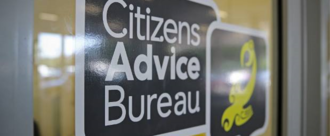


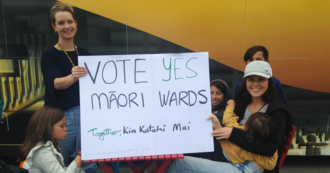.png)

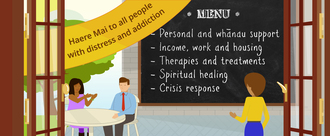
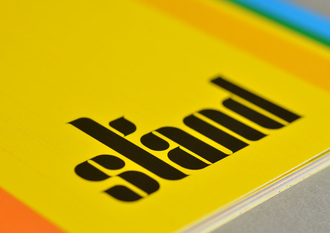

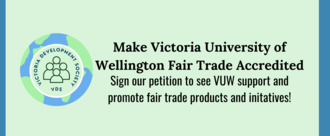.png)

